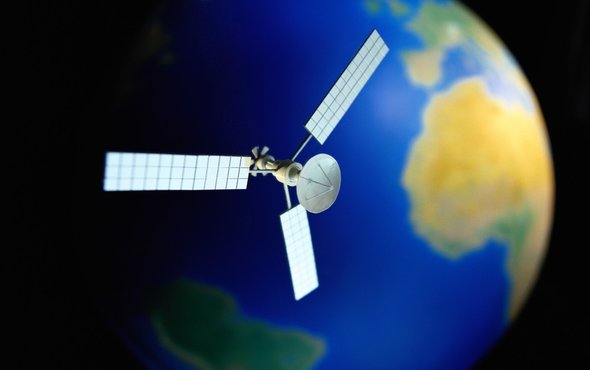(单词翻译:单击)
听力文本
This is Scientific American — 60-Second Science. I'm Steve Mirsky.
"There's three strategic trends that I see in space."
General Jay Raymond, Commander of Air Force Space Command in Colorado Springs. He recently visited Scientific American to talk about Space Command, which is responsible for space and cyber for the Air Force.
"One is space is congested...we track 23,000 objects in space. We provide the conjunction assessment warning, if you will, so for every object in space we do the analysis on every other object in space to see if there's a potential collision. And if there's a potential collision we make the warning for satellite operators around the world to maneuver their satellites to keep that collision from happening."
"I see the trends of that growing. If you look at the numbers of launches that are occurring, the numbers of launches are up largely because the cost of launch has gone down. So the access to space has gotten easier...not just are the numbers of launches going up, but the numbers of satellites on each launch are also increasing...and so I see that congestion just growing in the future, and that's something that we are obviously working to help mitigate that growing strain."

"The other thing that's happening in space is that we are becoming more contested. I think it's clear that space is a war-fighting domain just like air, land and sea. And we are seeing threats across the spectrum, everything from low-end reversible jamming of GPS satellites all the way up to high-end kinetic destruction, which we saw in 2007 when China shot down their weather satellite."
"And then the last thing, and I wouldn't say it's concerning by any means, is the increased competitive nature of space. I think that's a good thing. I think there's some huge opportunities here to leverage a growing commercial space market...I think as costs of launch go down and as technology allows for smaller satellites I think we'll be able to leverage those for a wide variety of missions."
For Scientific American — 60-Second Science. I'm Steve Mirsky.
参考译文
这里是科学美国人——60秒科学。我是史蒂夫·米尔斯基。
“我在太空看到了三种战略趋势。”
美国空军太空司令部指挥官杰伊·雷蒙德上将说道,空军太空司令部位于科罗拉多斯普林斯。他最近做客《科学美国人》节目,谈论了负责空军太空和互联网事务的太空司令部。
“其一,太空很拥挤,我们追踪了太空中的2.3万个物体。如果你有需要,我们可以提供碰撞评估警告,因此,为了太空中每一个物体的安全,我们对太空中所有其他的物体进行分析,以评估是否存在碰撞可能。如果有可能发生碰撞,我们会对全世界的卫星操作者发出警告,让他们操纵其卫星以避免碰撞发生。”
“我发现这种趋势日益增加。如果你留意了目前的卫星发射次数,你会发现发射数量大幅增加,因为发射成本降低了。所以,进入太空变得更加容易,不只是卫星发射数量上升了,每次发射的卫星数量也在增加,所以我认为未来太空会越来越拥挤,显然我们在努力缓解这种日益增加的拥堵压力。”
“太空中发生的另一件事是,我们面临的竞争将越来越多。很明显,就像空中、陆地和海洋一样,太空也是作战领域。我们看到了各种各样的威胁,从GPS卫星的可逆干扰这种低端威胁一直到动能破坏这种高端威胁,比如2007年中国击落了他们的气象卫星。”
“最后一件事,太空的竞争性增强了,无论如何我也不会说这件事令人担心。我认为这是件好事。日益增长的商业太空市场提供了巨大的机会,随着发射成本的降低和技术的进步,小型卫星可以进入太空,我认为我们将能利用这些条件完成各种各样的任务。”
谢谢大家收听科学美国人——60秒科学。我是史蒂夫·米尔斯基。
译文为可可英语翻译,未经授权请勿转载!
重点讲解
重点讲解:
1. be responsible for 对(某事物)负责的 ;
例句:Local authorities have been responsible for the running of schools in their areas.
地方当局一直负责管理本地区的学校。
2. keep sb. from doing sth. 阻止(或防止、阻碍)…做;
例句:I tucked some plastic wrap around the sandwiches to keep them from getting stale.
我用塑料包装纸把三明治裹起来,防止变质。
3. go down (价格、水平或数量)下降,下跌;
例句:Income from sales tax went down.
来自销售税的收入下降了。
4. by any means 无论如何;
例句:You must finish the work in time by any means.
你无论如何都要及时完成这项工作。


